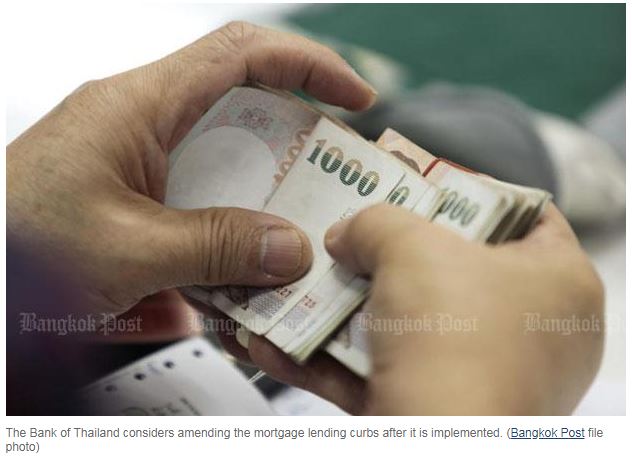Thailand: Loan curbs likely to see amendment
The Bank of Thailand will likely amend the soon-to-be implemented mortgage lending curbs after they take effect, depending on speculative behaviour, credit quality and the financial accessibility of homebuyers.
The amendment could mean either tightening or easing, Mathee Supapongse, deputy governor for monetary stability, said on Wednesday at a seminar held by the Housing Finance Association.
“In the case that speculative behaviour continues showing risky signs, the measures could be tightened further,” he said. “However, the central bank will consider easing the measures if they affect the loan accessibility of homebuyers.”
Since the central bank signalled tightened mortgage lending standards last October, housing lenders have adjusted their operations to prepare for the measures, while homebuyers have rushed to seek home loans ahead of implementation.
Mortgage lending growth jumped 7.8% last year.
According to the central bank’s data, new residential sales increased 9.2% in 2018. Growth of unit transfers was at 20%, while prices rose by 6%.
Starting from April 1, homebuyers require a minimum down payment for third and subsequent mortgages of 30% of the home price, but the minimum requirement for a second housing loan is 10-20%, depending on how long a borrower has made payments on the first one.
For those who seek a second mortgage to fund the purchase of a home priced at 10 million baht or higher, a minimum 20% down payment is required.
Foreign homebuyers, particularly Chinese, play a higher role in Thailand’s property market with a 30% surge in their residential transfers. Chinese buyers represented 43% of foreign purchasers.
Mr Mathee repeatedly said the central bank is concerned about the weakening purchase power of Chinese buyers amid China’s economic slowdown.
This would take a toll on local property developers and project finance of financial institutions, he said.
The country’s household debt ratio is another area that the central bank needs to closely monitor, Mr Mathee said.
Given that housing loans dominate the country’s total household debt at 33% and borrowers typically try their best to avoid missing housing payments, the situation is not too worrisome, he said.
Mr Mathee brushed aside concerns over a political vacuum during a formation of the new government, saying the current government remains functioning and the central bank’s economic growth forecast of 3.8% this year is reachable.
Domestic demand from both consumption and investment will lend support to growth, he said, while the trade spat between the US and China remains a key risk factor.
Source: https://www.bangkokpost.com/business/finance/1652128/loan-curbs-likely-to-see-amendment


 Thailand
Thailand




